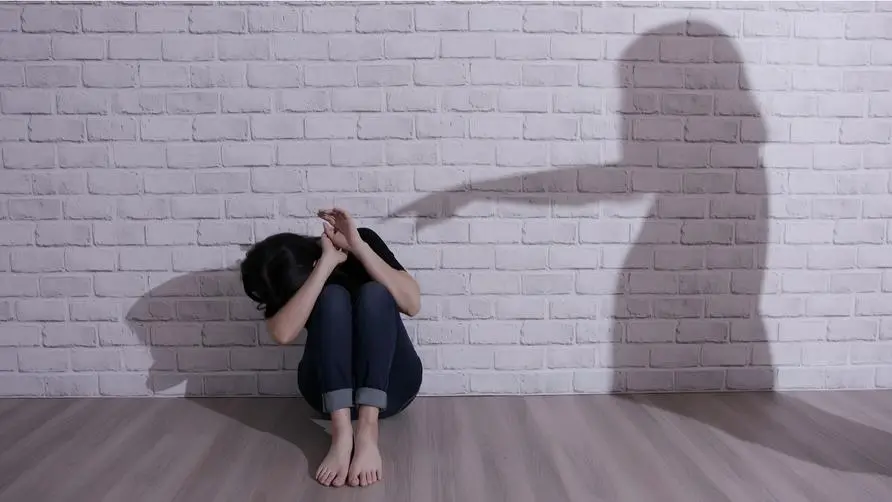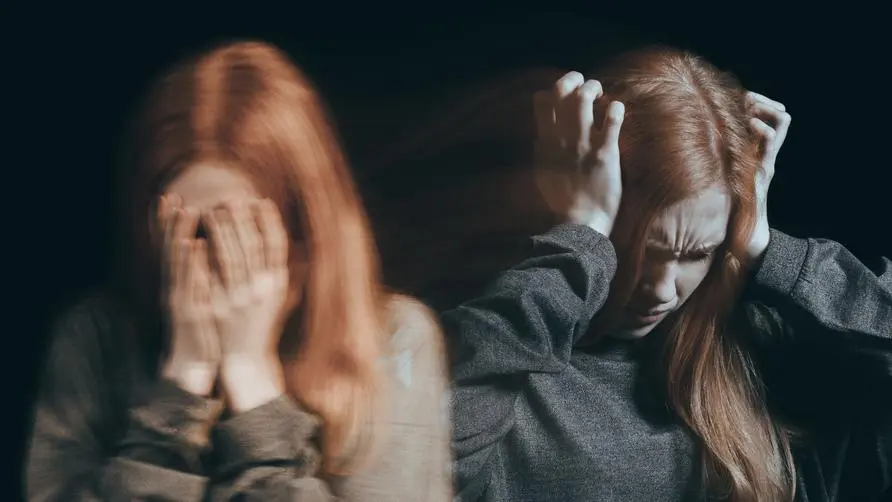Are lack of attention and slow reaction a sign of "psychiatric disorder"? How is schizophrenia diagnosed? Doctor: Stress and viruses are all triggering factors

Is schizophrenia related to genes? What diseases should I pay attention to in my family history?
With the popularity of social events and film and television content, the mental illness “schizophrenia” has gradually attracted attention. Schizophrenia was formerly known as “schizophrenia” and was officially renamed schizophrenia in 2014. Dr. Lin Jianheng, Department of Psychiatry, National Taiwan University Branch Hospital, Hsinchu, said that studies in Taiwan and abroad have shown that the prevalence rate of schizophrenia is about 1%, and there may be 1 patient in every 100 people. The most common age is between 15 and 25 years old. between the ages of 40 and 40, with the second peak incidence in women falling around 40 years old.
There is a clear relationship between schizophrenia and genes. Studies have found that if one identical twin has the disease, the chance of the other having the disease is as high as 50%. When one parent is suffering from schizophrenia, the chance of the child inheriting the disease is about 12%. If both parents have schizophrenia, the chance of developing the disease increases to about 24%. When an individual carries relevant genetic genes and encounters acquired stress, viral infection, etc., it may induce schizophrenia.
Dr. Lin Jianheng reminded that mental illness is related to a variety of genetic genes and is not caused by a single gene mutation, including depression, bipolar disorder, psychosis or schizophrenia. Anyone with a family history should be alert or seek psychiatric help as soon as possible. Physician assistance.
What are the symptoms of schizophrenia? How long after onset is the golden treatment period?
What are the early symptoms of schizophrenia? Dr. Lin Jianheng said that just like diabetes is caused by the abnormal function of the pancreas in secreting insulin, schizophrenia is related to the abnormal secretion of “dopamine” in the brain. When dopamine is excessively secreted, it can lead to illogical thoughts and behaviors, loose thinking, and even symptoms such as delusions of persecution.
In addition, patients with schizophrenia may have hallucinations and auditory hallucinations, and patients may hear many people talking and criticizing themselves. Derived from delusions and auditory hallucinations are a series of strange external behaviors, such as feeling that someone is targeting them, so they carry self-defense items with them, or they dare not use their mobile phones for fear of being tracked.
Dr. Lin Jianheng pointed out that schizophrenia is a brain disease, and patients may show signs of distractibility, memory loss, and slow reaction speed. If it occurs in adolescence, it may lead to poor learning status, academic regression, weird behavior and other problems.
The golden treatment time for schizophrenia is within two years of onset. The earlier you receive stable treatment, the more beneficial it will be for future disease control. Dr. Lin Jianheng pointed out that once the course of the disease is delayed for too long and brain cells continue to be damaged, the patient may develop from “positive symptoms” to “negative symptoms” and significantly lose the original ability to take care of himself, thinking flexibility, positive thinking, etc. function, causing thinking and emotional responses to become gradually slower and hollow.
How is schizophrenia diagnosed? What disease factors should be ruled out?
Dr. Lin Jianheng said that when children suffer from schizophrenia, they may have poor learning performance, or often feel the fear of “a storm is coming, and the storm is coming, and the building is full of storms.” They feel anxious and uneasy all day long, leading to a fear of contacting people or going out. They may even avoid social circle of peers and suffer from social fear and other phenomena.
Due to the difficulty of diagnosing mental illness in children and adolescents, the prodromal symptoms of bipolar disorder, depression, and schizophrenia often share similar psychopathological symptoms. Schizophrenia often requires stable follow-up for more than half a year to confirm the diagnosis, and early intervention and By increasing the observation time of the disease course, there is an opportunity to adopt minimal drug intervention, supplemented by environmental adjustments and establishing a sense of illness, to help patients minimize the burden of mental illness.
In addition, “psychological assessment” is also one of the auxiliary tools for evaluating schizophrenia, but not every patient needs it. Dr. Lin Jianheng explained that just like testing a computer’s CPU speed and memory size, psychological assessment can help clarify the child’s symptoms. Reaction speed, memory ability, and intellectual performance in language and mathematics can help to understand the condition of children and adolescents and assess their post-illness abilities in order to establish appropriate learning and life goals.
Dr. Lin Jianheng said that the atypical manifestations of psychopathology in some patients may often be related to certain physiological disease factors, such as epilepsy, thyroid abnormalities, autoimmune diseases or brain tumors. These physiological diseases may also affect brain functional performance. , causing symptoms similar to schizophrenia, so appropriate physiological examinations will be arranged depending on the individual patient’s condition. For example, if the patient has epilepsy, relevant brain wave examinations will be arranged to confirm whether there is abnormal electricity generation in the brain.
The diagnosis of schizophrenia requires the elimination of possible physical diseases, but clinical practice requires a psychiatrist to evaluate the individual patient’s condition before deciding whether to arrange it to avoid unnecessary examinations that delay the diagnosis and cause additional physical injuries. burden.
How is schizophrenia treated? Do I need to take medicine for a lifetime?
After being diagnosed with schizophrenia, is it necessary to take long-term medication? Dr. Lin Jianheng said that when schizophrenia occurs in adulthood, the first step is to receive regular treatment. After the symptoms stabilize, the direction of “reducing medication” can be considered. At present, the vast majority of patients require long-term medication control, but through stable and regular treatment, there is a high probability that the dosage can be reduced, symptoms can be controlled at the same time, and the thinking, mood and work ability can be restored to the way they were before the illness.
However, some children develop the disease in adolescence, and the symptoms are not stable, and diagnosis requires a sufficient period of time for psychopathological observation. Dr. Lin Jianheng pointed out that a child’s brain will continue to grow until late adolescence, and the course of the disease will change greatly with development, and the diagnosis may change over time. For example, some children are diagnosed with schizophrenia at the early stage of the disease, but later become diagnosed with schizophrenia. The emotional symptoms fluctuated and changed in the course of the disease, eventually leading to the diagnosis of bipolar disorder. At present, we hope that in terms of treatment, we can help children achieve the best control with the lowest therapeutic dose, and as the disease progresses, we can gradually achieve clinically safe and effective drug adjustments or reductions.
Dr. Lin Jianheng emphasized that once you are diagnosed with schizophrenia, you must take medication stably and never stop taking medication on your own. Stopping medication on your own will greatly increase the chance of recurrence, leading to damage and apoptosis of brain cells. Memory and thinking ability will be further affected due to recurrence of the disease. The damage may even lead to the need for higher doses of medication to control the condition.
Dr. Lin Jianheng said that if patients with schizophrenia do not take medication on time, they will suffer from chronic degeneration, with their daily behaviors becoming slower and their cognitive functions also declining. Nowadays, with the advancement of drugs, in addition to oral drugs, the US FDA has approved long-acting injection treatment that can be administered once every six months. In the future, it is hoped that there will eventually be an opportunity to develop into an injection treatment that will be administered once a year, effectively simplifying the treatment course for schizophrenia. , allowing patients to minimize their disease burden and live a normal and healthy life.
How do patients with schizophrenia adjust their lives? Can it function normally with proper treatment?
In addition to stable medication treatment, lifestyle adjustments and staying away from bad habits can also have positive benefits for schizophrenia. Dr. Lin Jianheng pointed out that psychiatric treatment emphasizes “regularity” and “structure”, and it is recommended that patients try to adopt a lifestyle of working at sunrise and resting at sunset, and avoid working shifts and staying up late. Get more exercise on a daily basis to promote good health and make your body more prepared to deal with diseases.
After being diagnosed with schizophrenia, you must stay away from alcohol and drugs. Dr. Lin Jianheng said that long-term alcohol abuse will increase the chance of auditory hallucinations and hallucinations, or cause alcohol-related psychosis, and the use of amphetamines more than 1-2 times may lead to lifelong pathological changes similar to schizophrenia, which is full of auditory hallucinations, hallucinations, etc. Emotional and behavioral responses to persecutory delusions and irritability and violence. Patients with schizophrenia often have a history of recreational drugs or drug abuse. Patients are reminded to absolutely avoid drinking alcohol and using illegal drugs.
In fact, patients with schizophrenia can get their lives back on track as long as they maintain stable control. Dr. Lin Jianheng gave an example. In the past, he treated a high school student who suffered from schizophrenia, auditory hallucinations and withdrawal. He was temporarily suspended from school for treatment at home. After taking medication, his symptoms were stabilized and he returned to school life and study functions. Later, he stopped taking medication and suffered from another illness. Take a few years off from school. After stopping the drug, the symptoms worsened significantly, including delusions and auditory hallucinations, and even suicidal behavior.
Fortunately, after re-treatment, his function recovered significantly with stable medication. He later successfully completed high school and is now working normally in society, with a more positive attitude towards life. Dr. Lin Jianheng pointed out that patients said that regular medication allowed them to gradually recover their functions and stay away from a fearful life full of auditory hallucinations and delusions. Through a correct understanding of mental illness, they no longer panic when facing the disease, and live a quality and healthier life.
Dr. Lin Jianheng said that with the advancement of treatment drugs, the burden on patients with schizophrenia has been reduced, and side effects such as abnormal menstruation, dizziness, and stiffness have also been reduced. Some patients, through the treatment of long-acting injections and a fixed frequency of return visits, feel that the impact of “sickness” is limited to the short 15 minutes between consultations. The rest of the time is a wonderful life that they can control, just like ordinary people. . We call on children and parents to detect symptoms of schizophrenia early and receive early medical treatment so that the disease can be more effectively controlled and the development of children’s lives will not be affected by mental illness.
Are people with schizophrenia prone to violent behavior? Are the symptoms of drug abuse similar?
Although mental illness has become more widely known to the public, social incidents in which people with mental illness hurt others are still seen in newspapers and media. Dr. Lin Jianheng said that schizophrenia is a brain disease that may cause confusion and even behavior that harms oneself or others. However, most patients with schizophrenia are affected by brain diseases. Their thinking ability is limited, their reactions are slow, and their executive functions are also significantly impaired. In fact, the frequency of violent behavior among patients with schizophrenia is not as high as popular imagination. In fact, patients with schizophrenia are often the vulnerable at the bottom of society.
Dr. Lin Jianheng said that acquired drug use has a very high rate of damage to the central nervous system, leading to significant delusions, auditory hallucinations, and violent and impulsive behaviors. These abnormal brain reactions are similar to symptoms of schizophrenia, but they are caused by drug abuse rather than Drugs can make people prone to violent behavior, and emotional impulses will become more frequent. Just like the extremely ferocious animals in the movie “Animal City”, their emotional and mental states are caused by exposure to special plant ingredients. abnormal changes. The society should pay more attention to the abuse of amphetamines and synthetic drugs, especially the problem of drug abuse in schools.
The stigma against schizophrenia among Taiwanese people has been significantly reduced. In the future, we should help risk groups or patients diagnosed with schizophrenia to gain access to correct information and stable treatment through good channels, so as to improve the prognosis of the disease and reduce the risk of schizophrenia. family and caregiver burden. Dr. Lin Jianheng pointed out that the initial diagnosis rate of schizophrenia has indeed increased, and some children will go to psychiatric hospitals for evaluation and treatment at the early stage of the disease. The public is urged to seek medical assistance and receive appropriate treatment as soon as possible if they notice abnormalities in mood, behavior or cognition.





